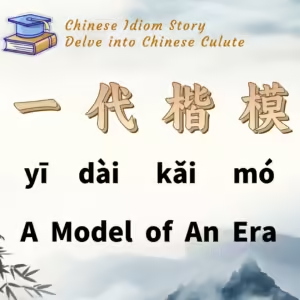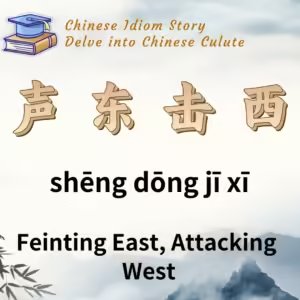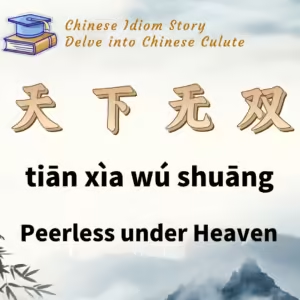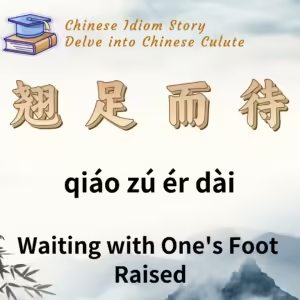
Chinese Idiom: 一代楷模 (Yi Dai Kai Mo)
English Translation: A Model for An Era
pīn yīn: yí dài kǎi mó
Idiom Meaning: Refers to a model figure of an era. “楷模” means an example or role model.
Historical Source: “Old Book of Tang · Biography of Li Jing.”
Idiom Story: When Li Yuan, the founding emperor of the Tang Dynasty, rose to power, his general Li Jing played a significant role by leading his troops in various battles, achieving remarkable feats.
One year, the Eastern Turks invaded the Tang borders with a large army. Li Jing led just three thousand elite cavalry to quell the rebellion. Emperor Taizong of Tang grew even more confident in him. Subsequently, Li Jing continued to secure numerous military successes for the court, rising to the position of Right Chancellor.
Li Jing was self-aware and understood that after serving in the court for many years and earning substantial merits and rewards, it was time to retire gracefully to avoid potential future troubles. Therefore, taking advantage of an opportunity when Emperor Taizong sent him to observe local customs, he claimed to have a foot ailment and requested to retire and return home. Seeing the earnestness of his petition, Emperor Taizong agreed to his request and sent the Imperial Secretary Mou Cen to convey his decree: “I have observed that since ancient times, very few people have been able to remain content with wealth and status, whether they are foolish or wise. Some people insist on holding onto official positions despite lacking talent; even when ill, they are reluctant to resign. Li Jing’s ability to understand the bigger picture is truly commendable. Now, I approve your request not only to fulfill your wish but also to regard you as a model figure for the era.”
When Li Jing retired, Emperor Taizong gave him special treatment.






